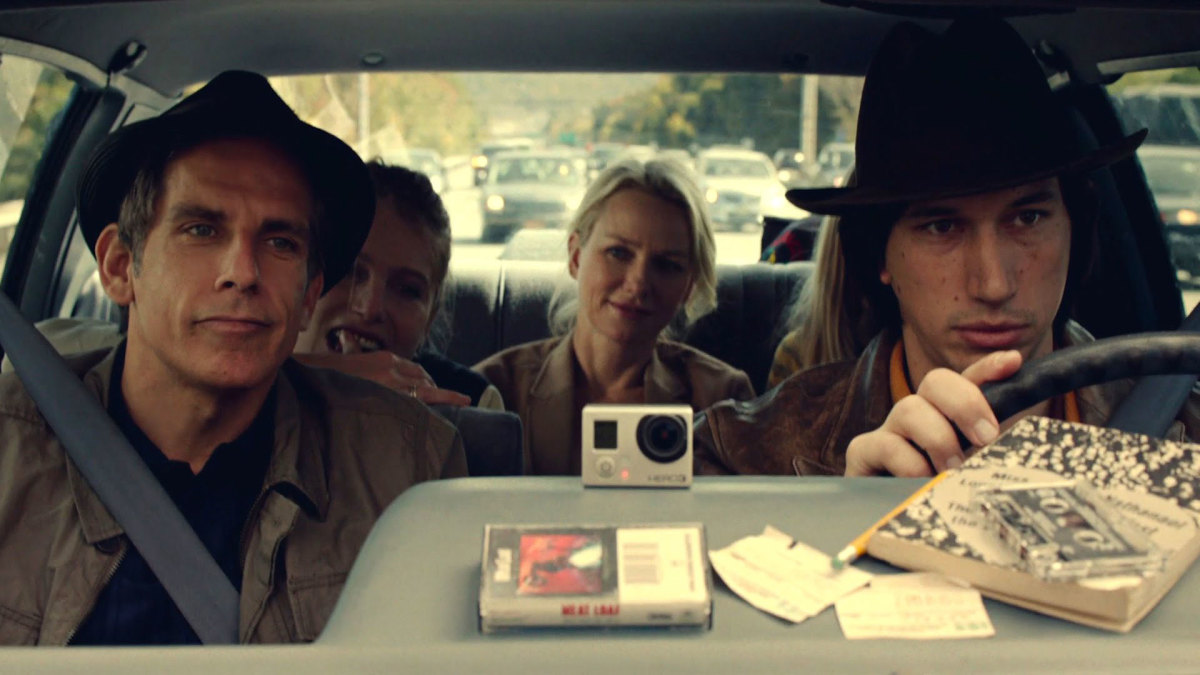Young at heart.
There’s a shot near the end of Noah Baumbach’s new movie that would not only be the perfect ending for the movie, but it would also be the Noah Baumbach ending. Then the following dreaded words appear on screen:
ONE YEAR LATER
Baumbach has not traditionally been a filmmaker concerned with epilogues. His films may have moved in recent years toward more definitive conclusions, but they have never sought to put on the kind of fine point implied by the words “ONE YEAR LATER.” This is just one example of how While We’re Young might be Baumbach’s most accessible film to date, but also the one that feels the least like him.
The subject matter itself is all Baumbach. While We’re Young concerns Josh and Cornelia (Ben Stiller and Naomi Watts), a documentarian and his wife who are facing their mid-40s. They’re childless but generally happy, if in a bit of a rut. As their best friends become their latest friends to have a baby, they’re feeling more and more alienated from their peers. It’s at this moment that two mid-20s Brooklyn hipsters drop into their lives while auditing the class Josh is teaching. Jamie (Adam Driver) is an aspiring documentarian himself, a fan of Josh’s work, while his better half, Darby (Amanda Seyfried), has started a business making ice cream. The couples have dinner one night after class, and the older sees in the younger the freewheeling lifestyle that they used to have. Jamie and Darby are all about authentic experiences, immersed in a post-Facebook rejection of new technology, while Josh and Cornelia feel themselves imprisoned by devices and further removed from the selves they want to be. As they grow friendlier with the young couple, changing their wardrobe and going to hip hop dance workouts, they also find themselves in a demographic no-man’s land. Josh is drifting even further from completing the film he’s been working on for a decade, and they both question whether not having kids was the right choice.
The increased conventionality of While We’re Young is on display from the beginning, but it starts out as a positive. Perhaps because of the presence of Stiller, who collaborated with Baumbach on a more offbeat character study in 2010’s Greenberg, While We’re Young has the rhythms of a mainstream comedy, albeit within the wonderfully realized Brooklyn we saw in Baumbach’s Frances Ha. The benign ennui of Josh and Cornelia and the thrift-store eccentricity of Jamie and Darby are both captured with insightful precision and contagious fun, and the clashes are structured toward a series of satisfying payoffs. One particular montage shows the older couple involved in all sorts of button pushing and finger swiping, while the younger one bangs out sentences on ancient typewriters and smokes cigarettes while playing Risk. We think of the young as masters of social media and their elders as curmudgeons who don’t know Twitter from Instagram, but the hipster fetish for vinyl and DIY has turned such conventional thinking on its head. While We’re Young knows this, and in its first half, it milks the ironies for all their worth, replete with delectable examples of Baumbach’s smart ear for dialogue.
It’s during the second half that this movie starts to feel like the work of someone who’s getting a bit out of touch himself. Some of Baumbach’s decisions actually reek of studio meddling, though the writer-director has usually been pretty free from such influences. The direction he takes these couples’ relationship is not in itself bad, but the execution is pedestrian. There are times when While We’re Young exhibits the traits of a suspense thriller, including that hackneyed device where a character stumbles across a revelation by mentally processing a montage of telling moments from earlier in the film. One climactic confrontation feels straight out of Hollywood, including inappropriately ominous music and on-the-nose thematic cross-cutting.
The problem seems to be that Baumbach has bitten off more than he can chew. Merely exploring a ripe social phenomenon – a square older couple navigates the awkwardness of becoming friends with a cool younger couple – would have been plenty for a film like this. Baumbach’s mistake is to tackle the authenticity issue, which expresses itself through the differing approaches to filmmaking taken by Josh and Jamie. Josh’s methodology is pure, rigorous and all encompassing, while Jamie’s is expedient, focused and results driven. Although he’s alternately critical of both, Baumbach seems to support Josh’s tendency to overstuff his work – in part because the same type of excess ambition is on display in While We’re Young. Generously, that could be read as a clever bit of meta, but it seems more like Baumbach is myopic about the ways the main character resembles himself. When Baumbach ends up damning the younger generation, dismissing them as a bunch of thieves and repurposers, it does feel like the insights of an old guy who has recently bought a fedora, and then been told he couldn’t pull it off.
And yet, this is Noah Baumbach we’re talking about. Even when his movies don’t totally work – and people have varying degrees of affection for films like Margot at the Wedding and Greenberg – they contain such a marvellous collection of wisdom about human beings and their foibles that they are always worth the effort. This one just needed to feel a bit more effortless.
7/10
For more Reviews, click here. If you’re digging ReelGood, sign up to our mailing list for exclusive content, early reviews and chances to win big!


